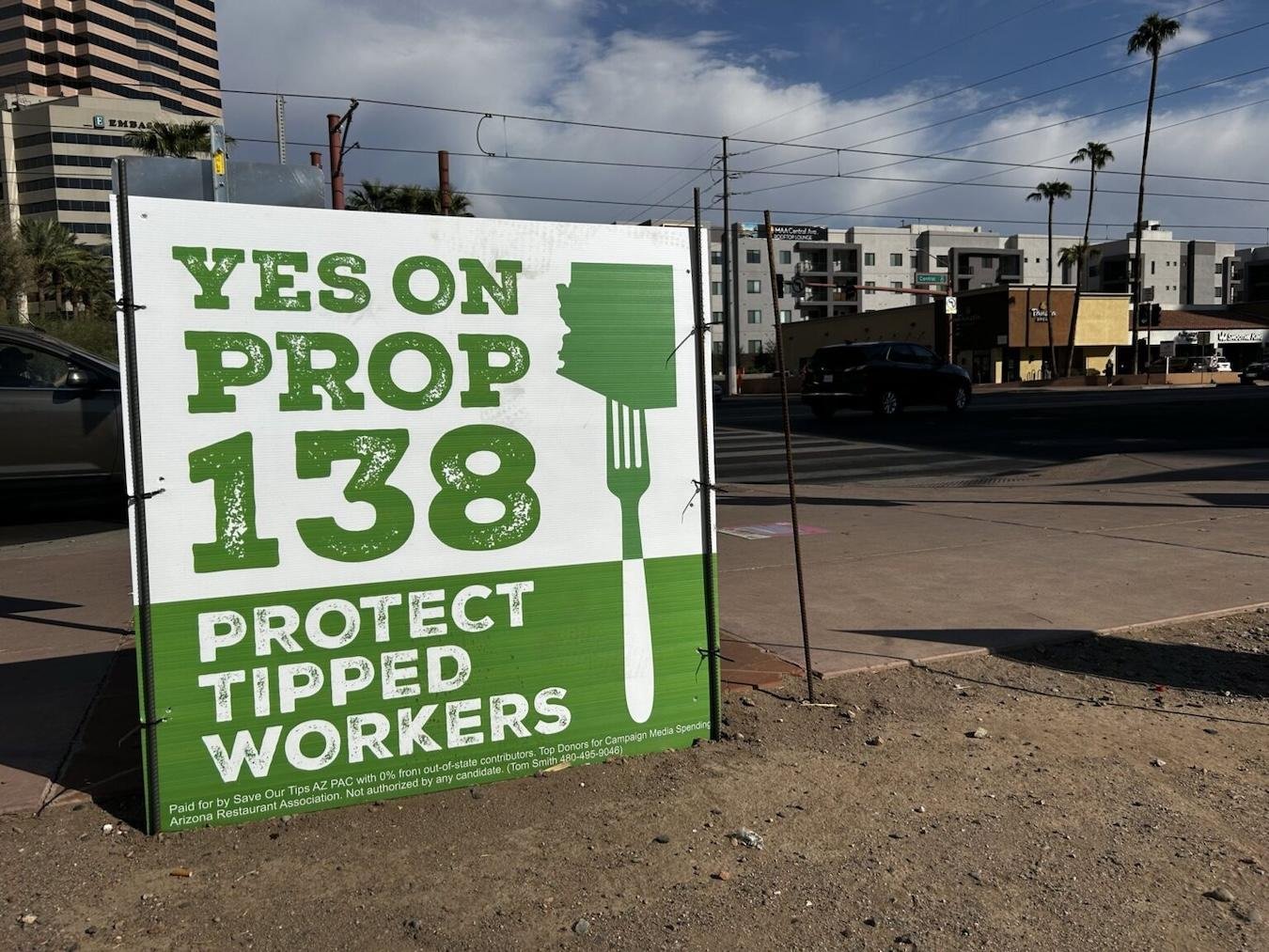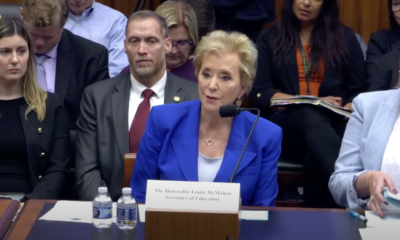arizona
Az Restaurants Mobilize Voters to Enshrine Pay Cuts for Servers and Bartenders in Constitution

Arizona’s restaurant industry is pushing for a constitutional amendment that would allow them to pay servers and bartenders 25% less than the minimum wage. Critics argue that this initiative, known as Proposition 138, is a strategy to inflate profit margins at the expense of workers.
The amendment seeks to counter a proposed ballot measure aimed at significantly raising the minimum wage and abolishing laws that permit restaurants to pay tipped employees below the standard wage. Proposition 138 is the only worker compensation measure set for consideration this year, following a successful challenge by the restaurant sector against the minimum wage initiative’s signature collection.
Currently, Arizona law permits businesses to pay tipped employees $3 below the minimum wage, which stands at $14.35. If Proposition 138 is enacted, this would shift to a $3.59 hourly reduction. Although this figure might seem minor on an hourly basis, it could accumulate into average annual savings for restaurant owners exceeding $1,200 per full-time tipped worker.
Jeanne Woodbury, a lobbyist for Creosote Partners, is leading a campaign against Proposition 138. She asserts that empirical analysis of the proposal reveals fundamental flaws. “The math here just does not check out at all,” she stated, emphasizing the potential negative impact on workers.
The Arizona Restaurant Association (ARA) has lobbied for this amendment, claiming it secures the minimum wage for tipped workers while existing regulations remain intact. They successfully convinced Republican lawmakers to present their proposal to voters.
Supporters of Proposition 138 wore “Save Our Tips” shirts at legislative meetings, but many had ties to the ARA, a fact not disclosed during discussions. A related political action committee, “Save Our Tips AZ,” was established shortly before the proposal gained traction, led by figures from the ARA.
Similar ballot initiatives have been observed in other states. Advocates point to the 2022 Washington D.C. case, where a minimum wage increase for tipped workers prompted a politically influential campaign against it—often masquerading as grassroots support. Such “astroturfing” strategies have raised concerns across multiple regions, including Arizona.
Matthew Benson, the spokesperson for the “Yes on 138” campaign, has dismissed claims of misrepresentation, asserting that the campaign’s payment for promotional materials is standard practice. Benson emphasized that the backing of the ARA is no secret.
Critics, including former Flagstaff City Council member Eva Putzova, insist that Proposition 138 undermines local wage regulations. Putzova argues that it perpetuates an unjust system historically rooted in the exploitation of workers, particularly African Americans after the Civil War, who were typically relegated to a system relying on tips rather than standard wages. “This created a kind of system of two kinds of workers,” she described, highlighting long-standing issues regarding fair compensation.
Concerns extend to ongoing issues about tip distribution and wage theft within the industry. Instances arise where servers are pressured to share tips with salaried staff, a practice deemed illegal under federal law. A Department of Labor investigation revealed serious infractions concerning tip credits at numerous restaurants, highlighting systemic non-compliance affecting employees across the sector.


















